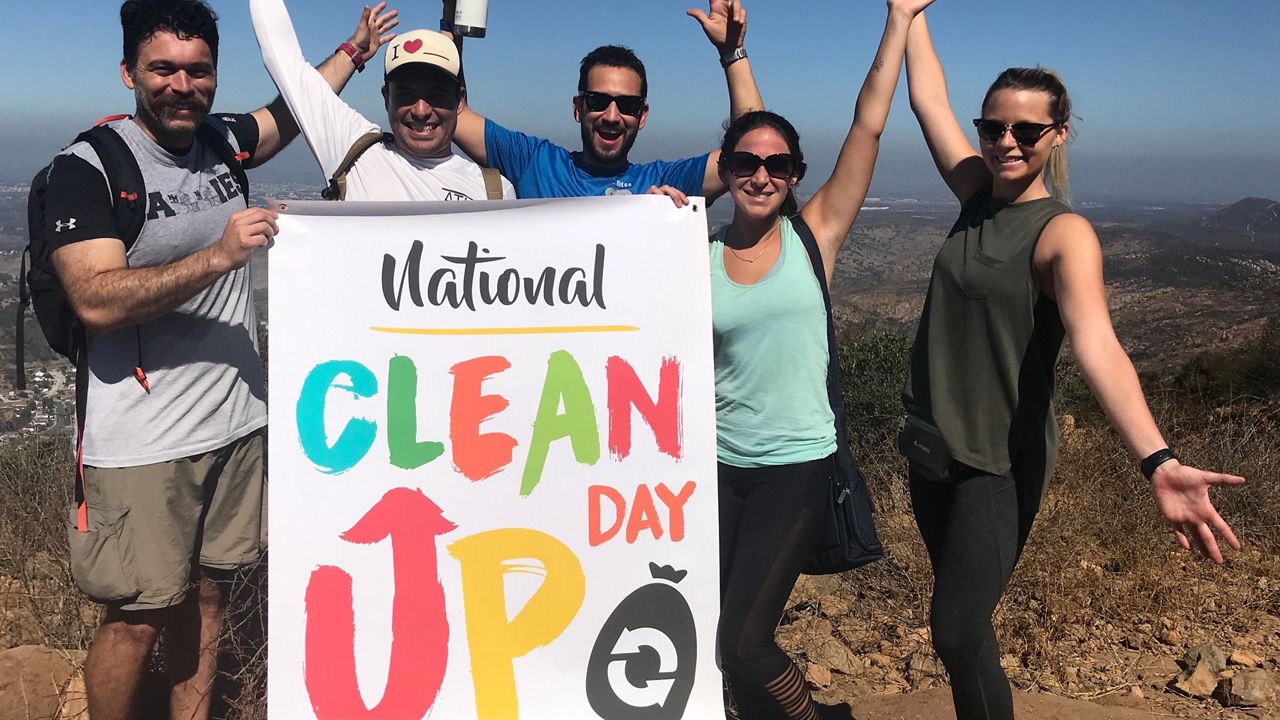LOS ANGELES — Despite the constant rumbling of trash trucks and ad campaigns that encourage us to reduce, reuse and recycle, litter is still commonplace. Walk nearly any street, and there are food wrappers and plastic bags that failed to make it to a trash bin and have instead become an eyesore.
“Personally, I would like to hike a trail or walk the beach and not see litter or trash,” said Steve Jewett, founder of National CleanUp Day — an event that takes place on the third Saturday of every September to encourage Americans to take action and make the country a better place to live. “I believe people have a personal and social responsibility to do that.”
This year’s event is Saturday and will take place anywhere someone decides to gear up with a garbage bag and spend a few hours picking up trash, whether that’s a beach, trail, park or parkway.
National CleanUp Day runs concurrently with the California Coastal Commission’s long-standing California Coastal Cleanup Day, also this Saturday. Participants just aren’t restricted to the beach. They can work their litter pickers and buckets and gloves wherever there’s a need.
In SoCal, “beaches have been the focus in the past,” Jewett said. “Our goal is to take that conceptually out from the beach, working on entire watersheds.”
Americans, as a whole, are generating more waste, less and less of which is being recycled, according to the U.S. Environmental Protection Agency. What National CleanUp Day focuses on is so-called free-range litter — litter and trash that has not been properly disposed of and is dirtying public spaces.
The majority of what people find during cleanups: cigarette butts and plastic food wrappers, Jewett said.
Now in its fifth year, National CleanUp Day first took place in Sept. 2017 primarily among affiliates of the nonprofit community improvement organization, Keep America Beautiful. The group recently found that if every American picked up 152 pieces of trash at the same time, the country would be litter-free.
After drawing about 225,000 volunteers in its first year, National CleanUp Day formalized its partnership with Keep America Beautiful in 2018 and added the environmental group, Earth Day. By 2019, it was drawing nearly 2 million volunteers in all 50 states of the U.S. that together picked up 14 million pounds of litter.
While National CleanUp Day drew 671,000 participants last year due to COVID, they still managed to pick up 4.5 million pounds of trash.
“Almost every single one of them was an individual,” Jewett said, who expects that trend will continue this year.
Picking up trash has become a popular outdoor activity, largely because of social media such as Instagram, he said. “People are showing they’re incorporating picking up trash in their everyday routines. They're starting to add this to their activities.”
National CleanUp Day does not run any cleanups on its own. It partners with other organizations, including the County of Riverside and city of San Diego. Jewett expects a million people will participate this year and clean up between 7 and 10 million pounds of trash.
To participate, Jewett’s group encourages plogging, or the act of picking up trash while walking or jogging. The trend started to take off a few years ago, after a Swede named Erik Ahlstrom created a website asking people to “pick ‘n jog” and organized activities for people to participate.
National CleanUp Day also encourages something called trash tagging, where an individual or group cleans up a heavily littered area and posts before and after pictures online using the hashtag #trashtag.



